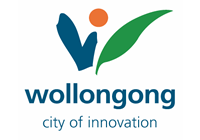Self-containment measures the proportion of resident workers who are employed within the boundaries of the Local Government Area or region. It indicates the propensity of residents to seek employment outside the Local Government Area or region in which they live.
Self containment is likely to be higher for regional areas and, lower in metropolitan areas and is influenced by:
- The nature of employment opportunities versus the skills and qualifications of residents;
- Transport options available and commuting times;
- Relationship between wages and salaries and house prices in the area; and
- The geographic size of the area.
Employment self-containment data should be viewed in conjunction with detailed Residents place of workdata to see where resident workers are accessing employment, along with Jobs to workers ratio data which provides the theoretical number of jobs which could be provided to residents of Wollongong City Council in the local area, and is updated annually. The Resident workers section will provide the characteristics of resident workers.
Data source
Australian Bureau of Statistics (ABS) – Census 2016 & 2021 – by place of work
- Industry
- Occupations
| Employment self-containment by Industry | |||||||||
|---|---|---|---|---|---|---|---|---|---|
| Wollongong City Council | 2021 | 2016 | Change | ||||||
| Industry | Total resident workers | Resident workers employed in the region | % of resident workers employed in the region | Total resident workers | Resident workers employed in the region | % of resident workers employed in the region | 2016 - 2021 | ||
| Agriculture, Forestry and Fishing | 253 | 137 | 54.2 | 270 | 151 | 55.9 | -1.8% | ||
| Mining | 1,753 | 894 | 51.0 | 1,699 | 756 | 44.5 | +6.5% | ||
| Manufacturing | 5,592 | 4,201 | 75.1 | 5,048 | 3,641 | 72.1 | +3.0% | ||
| Electricity, Gas, Water and Waste Services | 973 | 541 | 55.6 | 877 | 442 | 50.4 | +5.2% | ||
| Construction | 8,997 | 4,734 | 52.6 | 7,733 | 3,808 | 49.2 | +3.4% | ||
| Wholesale Trade | 1,634 | 891 | 54.5 | 1,769 | 962 | 54.4 | +0.1% | ||
| Retail Trade | 8,344 | 6,152 | 73.7 | 8,401 | 6,044 | 71.9 | +1.8% | ||
| Accommodation and Food Services | 6,873 | 5,621 | 81.8 | 6,546 | 5,495 | 83.9 | -2.2% | ||
| Transport, Postal and Warehousing | 4,324 | 2,473 | 57.2 | 3,987 | 2,305 | 57.8 | -0.6% | ||
| Information Media and Telecommunications | 1,098 | 536 | 48.8 | 1,080 | 602 | 55.7 | -6.9% | ||
| Financial and Insurance Services | 3,448 | 2,141 | 62.1 | 3,386 | 2,252 | 66.5 | -4.4% | ||
| Rental, Hiring and Real Estate Services | 1,183 | 850 | 71.9 | 1,246 | 963 | 77.3 | -5.4% | ||
| Professional, Scientific and Technical Services | 6,579 | 3,998 | 60.8 | 5,057 | 3,278 | 64.8 | -4.1% | ||
| Administrative and Support Services | 2,974 | 1,883 | 63.3 | 2,978 | 1,911 | 64.2 | -0.9% | ||
| Public Administration and Safety | 6,994 | 3,780 | 54.0 | 6,333 | 3,567 | 56.3 | -2.3% | ||
| Education and Training | 10,962 | 7,606 | 69.4 | 10,361 | 7,337 | 70.8 | -1.4% | ||
| Health Care and Social Assistance | 16,918 | 12,411 | 73.4 | 13,050 | 9,889 | 75.8 | -2.4% | ||
| Arts and Recreation Services | 1,474 | 977 | 66.3 | 1,314 | 848 | 64.5 | +1.8% | ||
| Other Services | 3,653 | 2,610 | 71.4 | 3,497 | 2,578 | 73.7 | -2.3% | ||
| Industry not classified | 3,493 | 2,252 | 64.5 | 3,214 | 2,119 | 65.9 | -1.5% | ||
| Total Industries | 97,943 | 64,670 | 66.0 | 88,180 | 58,958 | 66.9 | -0.8% | ||
Source: Australian Bureau of Statistics, Census of Population and Housing 2016 and 2021 Compiled and presented in economy.id by .id (informed decisions). Please refer to specific data notes for more information | |||||||||


